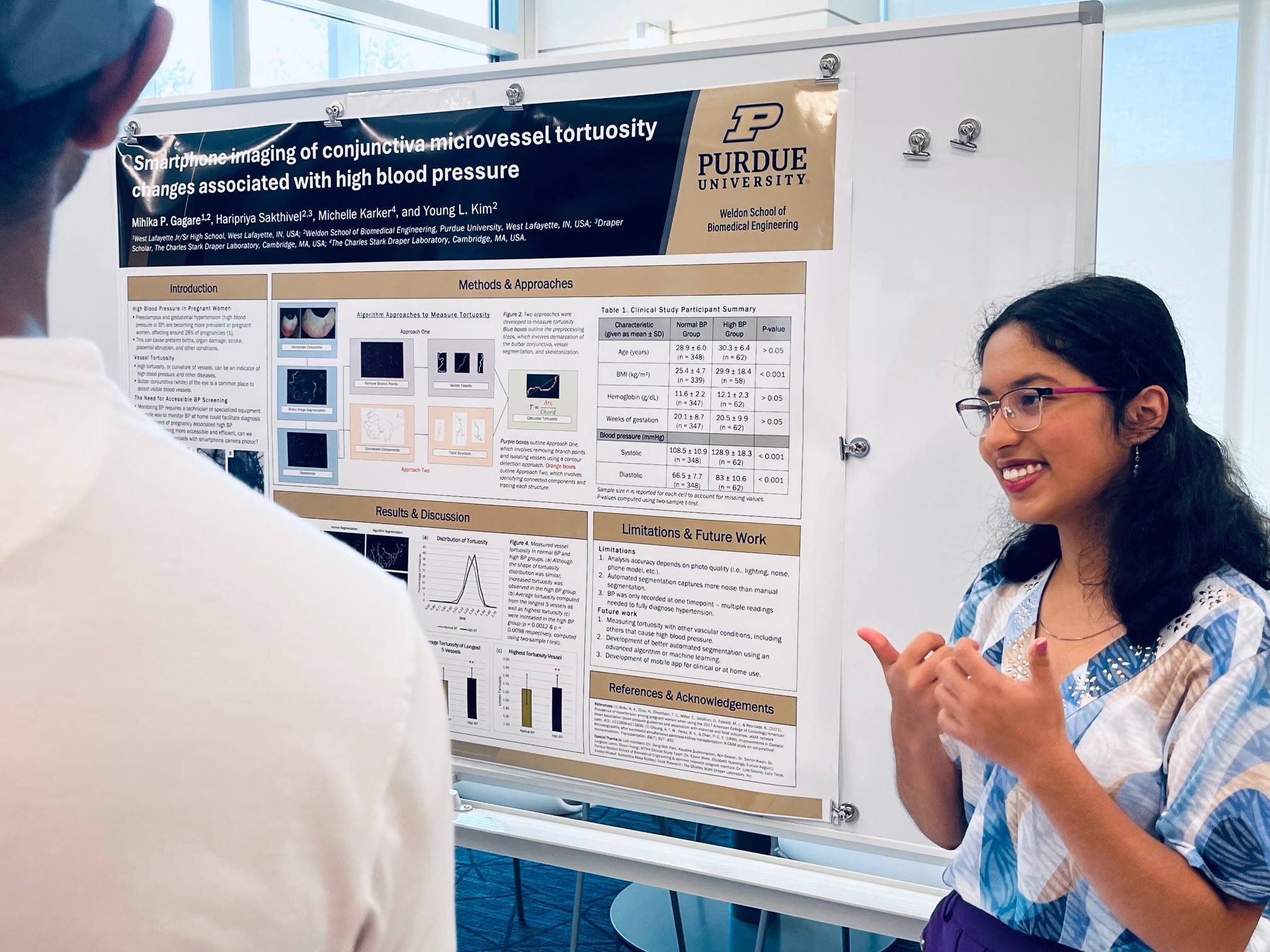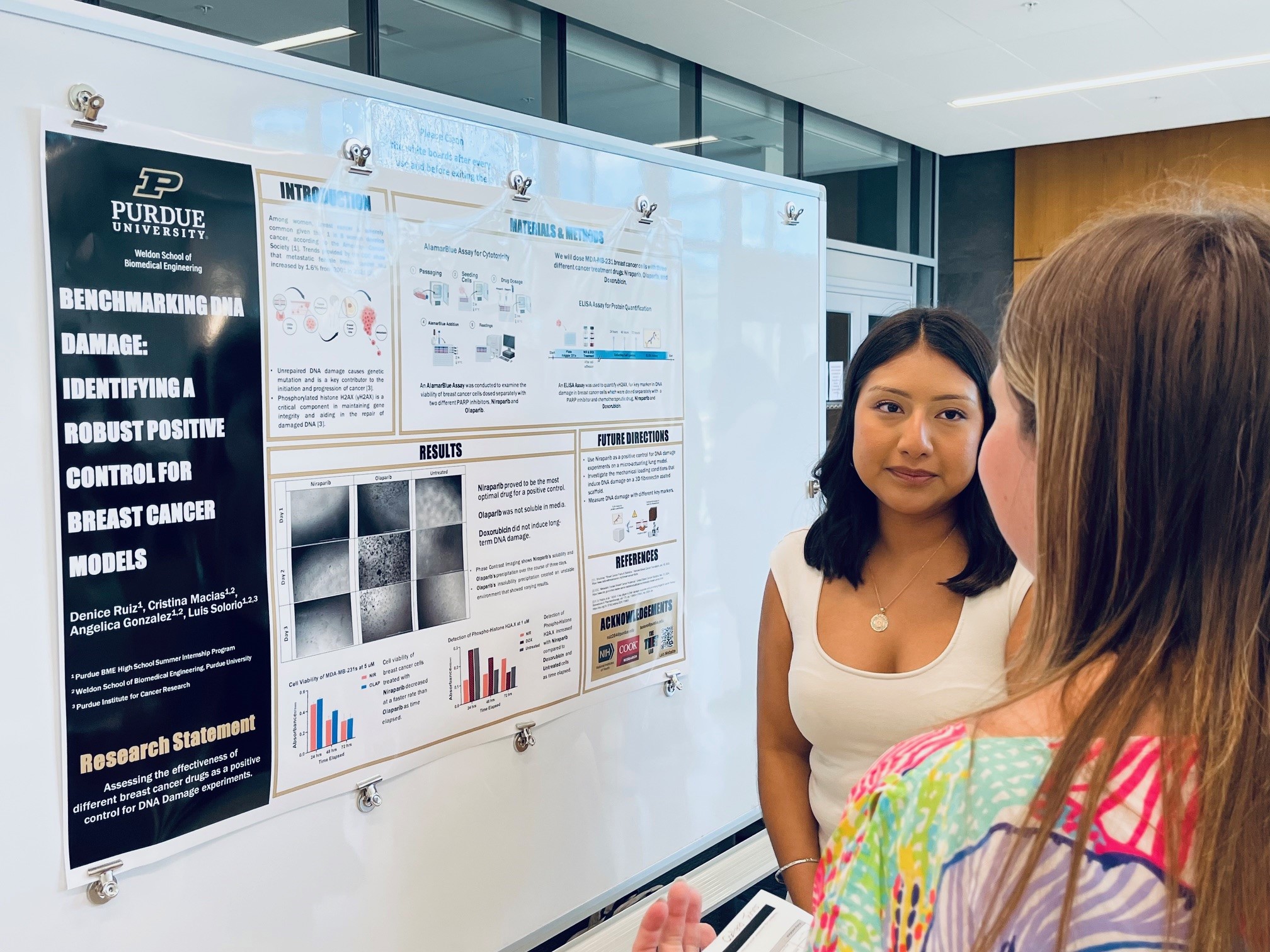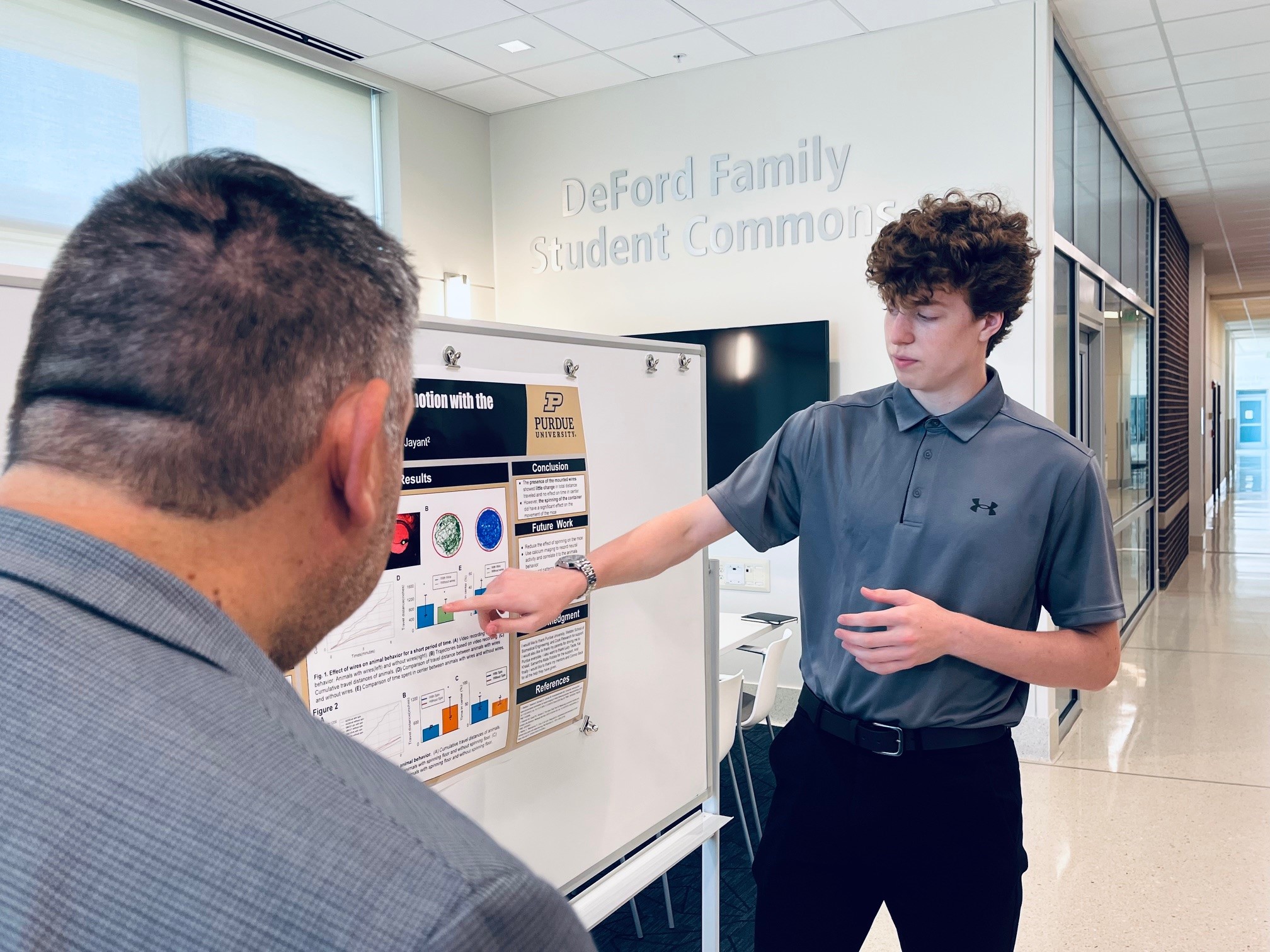High School Interns turn curiosity into research breakthroughs

Immersive Lab Experience
Led by Associate Professor Luis Solorio and graduate student Lucy Tecle, with support from graduate students Samantha Mata Robles and Khalaf Khalid, the program paired each student with a lab and mentor who guided them through day-to-day research. Students worked alongside graduate and undergraduate mentors, including Doohyeong Jang and Shivam Kant (Jayant Lab), Haripriya Sakthivel (Kim Lab), Juan Mesa (Lee Lab) and Angelica Gonzalez Ng and Maria Cristina Macias (Solorio Lab).
Projects ranged from behavioral neuroscience to diagnostic device development, introducing interns to cutting-edge biomedical research and essential lab skills—while also fostering scientific curiosity and confidence.

Beyond the Bench
The experience extended past research. Students took part in professional development workshops, journal club discussions and beginner Python programming sessions, building both technical and soft skills. Industry site visits to Cook Medical, MED Institute and Cook Advanced Technologies provided a firsthand look at how innovations move from the lab to real-world applications.

A Milestone Moment
The program culminated in a poster session and closing ceremony where interns presented their research findings to faculty, mentors and family members. For many, it was their first time standing in front of an audience—a moment that marked both achievement and possibility.
“Not only did the program give him an overview of scientific research, it provided real hands-on experience in the field he’s truly interested in,” shared Cariann Spirydovich, mother of participant Daniel. “He now sees the value in a lot of things he’s doing in high school.”
“The opportunity to understand research and trust the process has built his confidence,” said Melissa Johnson, another parent. “It’s also sparked his interest in engineering and biomedical engineering. I would recommend this opportunity to all high school students.”
For Solorio, watching students grow throughout the program is especially rewarding:
“The high school students can return each summer, which shows their continued growth,” Solorio said. “These students will be able to apply for college with a research paper under their belt.”
He also emphasized the role of families:
“The success of the summer internship is possible because family members are involved and supporting their students,” he said. “These students are pushed beyond their comfort zones. The program takes effort and they come out learning a lot about themselves and biomedical engineering.”
This program is made possible through the generous support of the Cook Research Group, whose ongoing commitment to mentorship helps inspire the next generation of biomedical engineers.
